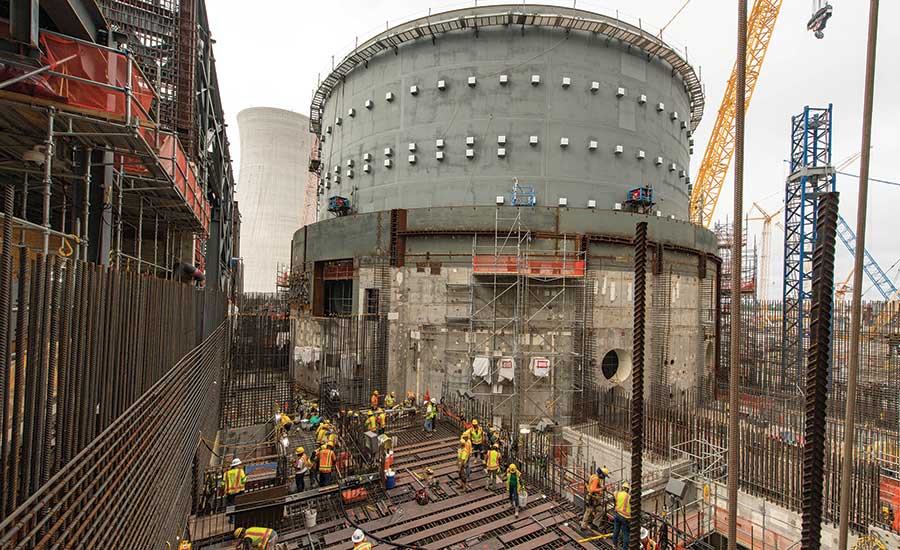Georgia Power’s Sept. 26 gamble to accept demands from Oglethorpe Power Corp. to assume more contractual risk and continue the Plant Vogtle nuclear expansion—now estimated at $27 billion—matches the utility’s earlier assessment that contractors can deliver the long-delayed project on the current schedule. Though the utility bumped up Vogtle’s price tag by $2.3 billion in its latest report to state regulators, filed in August, Georgia Power also noted faith in Bechtel’s continuing estimate that it can achieve the respective commercial operation targets for Units 3 and 4 of November 2021 and November 2022.
Georgia Power spokesperson John Kraft noted to ENR: “The company believes that the revised forecast and new contingency should be sufficient to take the project to completion.”
Still, the utility, a division of Southern Co., initially threatened project cancellation should OPC not accept the original terms, pushing back against the notion of co-owner cost caps in a Sept. 24 press release which said that “all four co-owners fully understood and voluntarily accepted their own risks … at the project’s inception.”
With roughly four years of construction remaining, OPC said in a statement that it sought to “hold Southern Company accountable for its newly revised budget and let their owners be responsible for any additional amounts beyond this level.” OPC estimates its share of project costs has grown to $7.25 billion, from $4.2 billion.
Overall, the existing project ownership structure remains: Georgia Power, with 45.7%; OPC, 30%; the Municipal Electric Authority of Georgia, 22.7%; and Dalton Utilities, 1.6%.
However, the new agreement enacts a sliding scale of added costs for Georgia Power for future increases. An escalation of between $800 million and $1.6 billion bumps Georgia Power’s share of construction costs to 55.7%. That rate jumps to 65.7% should new costs tally between $1.6 billion and $2.1 billion. If costs jump by more than $2.1 billion, the utility’s SEC filing states, “Each of the other Vogtle owners would have a one-time option to tender a portion of its ownership interest to Georgia Power in exchange for Georgia Power’s agreement to pay 100% of such Vogtle Owner’s remaining share of construction costs.”
According to the filing, Georgia Power could also cancel the project in lieu of purchasing additional ownership interest.
The August report to regulators details that attracting a sufficient number of craft workers remains a challenge, noting the need for “increased craft labor levels for certain disciplines as construction work transitions from the civil phase to mechanical and electrical phases.”
Georgia Power noted a sizeable increase in costs for “contract construction” in its latest report, attributing these to “changes at the project to lower project risks and maintain its schedule.”
Among these are an expansion of the “scope of Bechtel’s contractor duties and resulting fees, increasing field supervision and engineering support, and implementing craft labor incentives to attract and retain adequate staffing.”
Greater than expected costs for “procurement”—which covers procurement of materials and subcontracts—also contributed to the latest increase. The utility noted, for instance, that more than 60 subcontracts had not yet been negotiated by the time Georgia Power announced Bechtel’s hiring in August 2017.
Costlier than expected were the subcontracts for coatings and fireproofing, Containment Vessel and Shield Building assembly and support, as well as HVAC fabrication and installation. Many of these “reflect changes in market conditions and, in several cases, increased scope,” the report stated.
As of the end of July 2018, Georgia Power estimated that the total project is approximately 69.9% complete. While the company estimates design engineering to be 98.1% complete, total construction is “over halfway complete.”
According to the utility, the construction work that Bechtel is either handling itself or directly overseeing via subcontracts is roughly 55% complete.





